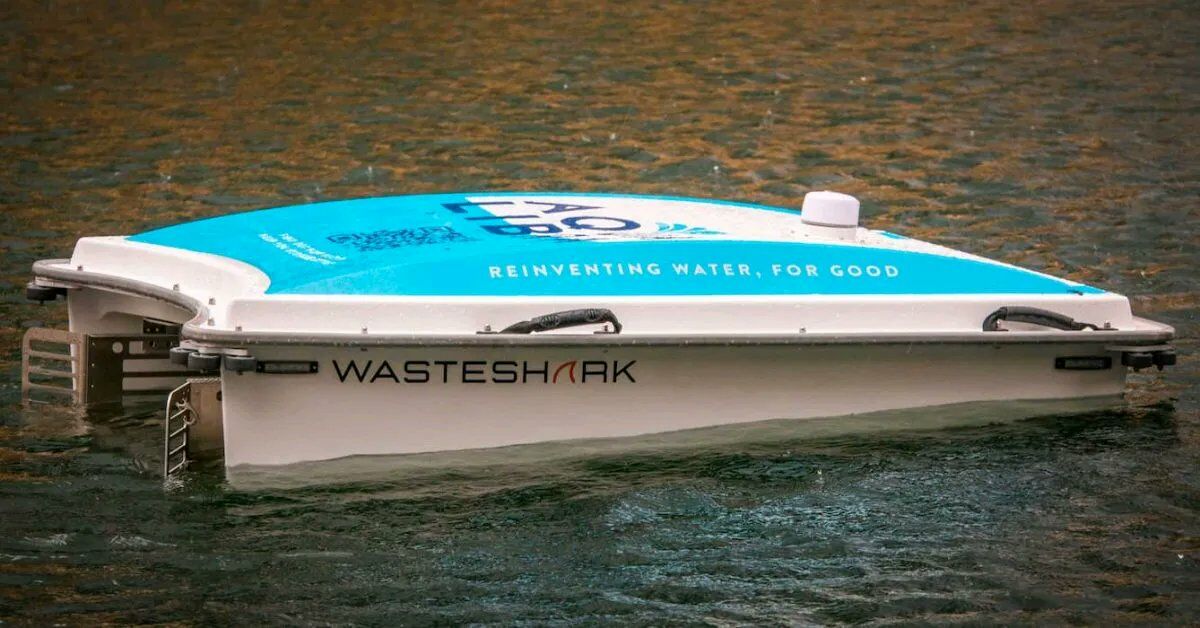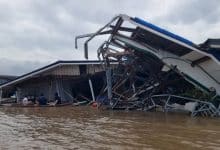WasteShark provides solution for polluted Chao Phraya River in Thailand (video)

A marine environment company in the Netherlands has created WasteShark, a ground-breaking robotic shark that could provide a solution to the serious pollution problem in the Chao Phraya River in Thailand. The device patrols rivers and canals and swallows discarded plastic waste.
Invented by Netherlands-based RanMarine, WasteShark is a battery-powered electric catamaran that can travel up to 5 kilometres through water before needing a recharge. It can collect up to 500 kilograms of plastic and other pollutants as it navigates through the water on its own.
Recently, the WasteShark was tested in the River Thames near London’s docklands, where it successfully collected over 22,700 plastic bottles in a single day.
RanMarine CEO Richard Hardiman told Reuters that “WasteShark is a drone on water and it’s designed to sweep the surface of the water and collect trash, debris, biomass out of the water and return it back to land.”
Hardiman added that WasteShark produces zero carbon emissions, does not create noise or light pollution during its travels, and does not pose a threat to wildlife. Its primary purpose is to eliminate plastic waste from waterways and ensure that the plastic collected is recycled and repurposed.
Hardiman added…
“We have two versions: one that can be remotely controlled and one that is autonomous, very similar to a vacuum cleaner you might have at home.
“The idea is on the autonomous mode that it acts as a drone. So, it literally sweeps around the water. You can go and do your job, come back and it should be full, and you empty it and then you put it back in.”
A ‘robotic shark’ that gobbles up plastic waste has been let loose in London Docklands, to clean up the water by removing the equivalent of more than 22,700 plastic bottles per day pic.twitter.com/FBVSYBd13x
— Reuters (@Reuters) March 29, 2023
In addition to collecting plastic waste, WasteShark also gathers valuable data on water quality during their journeys. They are equipped with sensors that measure various parameters such as turbidity, salinity, temperature, pH balance, and water depth, and send this information back for analysis.
These machines can be acquired for approximately £20,000 (US$33,400) or rented for around £1,000 (US$1,670) per month.
Bangkok‘s canals and rivers are some of the most polluted waterways in the world. The city‘s waterways are clogged with garbage and sewage, and the water is contaminated with heavy metals and other toxic chemicals.
This pollution is caused by industrial and agricultural run–off, as well as by the city‘s inadequate sewage and drainage systems. As a result, the water is not safe for swimming or fishing, and it is damaging the local ecosystems.
The pollution has also caused problems for local people, including health issues caused by contact with contaminated water, and reduced access to clean drinking water.
Maybe if the Thai government invested in one or two WasteShark devices it would help with the cleanup.
Latest Thailand News
Follow The Thaiger on Google News:


























